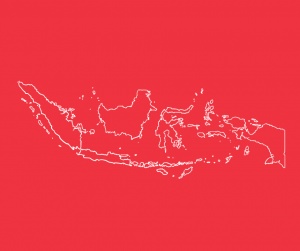
New research revealing the attitudes of Indonesians towards the death penalty provides new data that could facilitate fresh discourse on the future of capital punishment in the country
- News
- 30 Jun 2021
The two-part study concluded that the country’s opinion formers are keen to move away from capital punishment and that the public are open to change.
The research was commissioned by The Death Penalty Project, in partnership with LBH Masyarakat and the University of Indonesia and conducted by Prof. Carolyn Hoyle of the Death Penalty Research Unit at the University of Oxford to investigate the widely accepted belief that the majority of Indonesians support the death penalty. Through nuanced questioning, the study sought to better understand attitudes and examine how entrenched views were in order to facilitate a constructive discourse.
The study showed that the more information people were presented with regarding the application of the death penalty, the less they supported it. Likewise, when presented with mitigating circumstances, public support for the death penalty fell dramatically. Findings suggest that the public are not opposed to abolition but that they lack the knowledge required to engage fully with the subject.
- 67% of opinion formers are in favour of abolishing the death penalty
- 69% of the public initially supported the retention of the death penalty but only 35% were strongly in favour of this
- Only 2% of the public felt that they were very well informed about capital punishment compared with opinion formers who were generally knowledgeable about the punishment and wider criminal justice system
- Only 4% of the public felt very concerned by the issue.
Indonesia is among the minority of countries that retain the death penalty in law. There are several crimes which are punishable by death, including murder, robbery, terrorism, and drug offences. Over 60% of death sentences handed down in the country, and half of all executions carried out in the past 20 years, have been for drug related crimes. The report also found that support for the death penalty in realistic scenarios was lower than in the abstract and when shown the possibility that innocent people could be executed, public support for abolition rose from 18% to 48%.
Like many of its South East Asian neighbours, Indonesia retains the death penalty with the assumption that it serves as an effective deterrent against crime, in particular drug trafficking, yet there are have been no academic studies carried out that support this belief.
Muhammad Afif, Director, LBH Masyarakat said; “The two reports show that achieving abolition of the death penalty is not impossible in Indonesia. The opinions of both the public and elites give hope to death row inmates that one day we may be free from the firing squad.”
Parvais Jabbar, Co-Executive Director of The Death Penalty Project said;
“Public support continues to be cited by the Indonesian government as the rationale for retaining the death penalty, but the findings of our research indicate the public is in fact open to a change in policy on this important issue. There is clear support for abolition amongst opinion formers and findings evidence that the more the public knows about the death penalty the less they support it. We hope that the data and analysis gathered in the two reports can be used to facilitate a constructive dialogue on the future of capital punishment in Indonesia.”
Notes to editors
The reports
An Appetite for Change: Interviews were conducted with 40 opinion leaders; considered influential in shaping, or in responding to, public opinion from across Indonesia.
No Barrier to Abolition: public opinion research was undertaken by surveying a representative sample of 1,515 respondents, allowing us to understand the views of the overall population.
Death Penalty Project
The Death Penalty Project (DPP) is a legal action NGO with special consultative status before the United Nations Economic and Social Council. For more than three decades, the DPP has worked to protect the rights of those facing the death penalty.
Carolyn Hoyle
Caroyln Hoyle is Professor of Criminology and Director of the Death Penalty Research Unit and the University of Oxford. For almost thirty years, she has taught and researched at the University of Oxford, with a particular focus on the death penalty. She is co-author, with Professor Roger Hood, of The Death Penalty: A Worldwide Perspective, as well as other books, reports and academic journals on capital punishment and criminiological topics.
LBH Masyarakat
LBH Masyarakat is a non-profit organisation that provides free legal aid services for marginal communities and death row prisoners in Indonesia.
University of Indonesia
The University of Indonesia, is a public university in Depok, West Java and Salemba, Jakarta, Indonesia. It is one of the oldest tertiary-level educational institutions in Indonesia and is generally considered as one of the most prestigious universities in the country.
Death penalty in Indonesia
The death penalty is retained as punishment in Indonesia and as well as being imposed in murder cases, it is frequently applied to drug offences. The last known executions to be carried out in Indonesia were in 2016 when four men, including three foreign nationals were executed by firing squad for drug trafficking. Drug offences do not meet the international law threshold of ‘most serious’ crimes and executions carried out for drug offences are in violation of human rights laws and standards. There are currently at least 355 people on death row in Indonesia.
Death penalty around the world
Over the last four decades the number of countries to have abolished the death penalty continues to increase, and those that regularly execute find themselves in a small minority. Today, 109 of 193 member states have removed the death penalty from their statute books completely, most recently Malawi, which abolished the death penalty in April of this year. Currently 49 countries are regarded as abolitionist de facto, having not carried out an execution within the past 10 years. Indeed, the vast majority of executions are undertaken by a small subset of nations: at least 88% of global executions in 2020 occurred in China, Iran, Egypt, Iraq and Saudi Arabia.

















